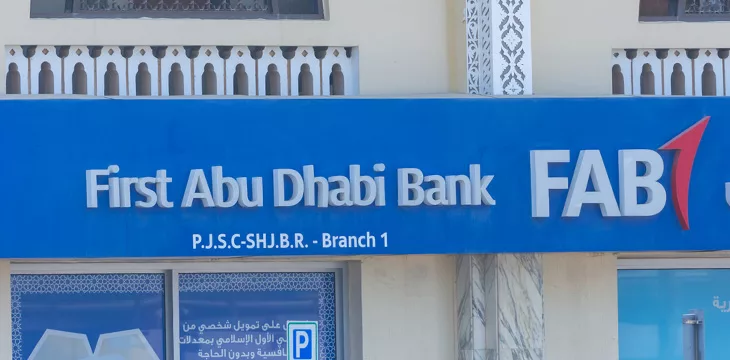|
Getting your Trinity Audio player ready...
|
First Abu Dhabi Bank (FAB), the largest commercial bank in the United Arab Emirates (UAE), has announced the completion of a pilot experimenting with blockchain technology in cross-border transactions.
The pilot leveraged JPMorgan’s Onyx (NASDAQ: JPM), a permissioned distributed ledger built to improve faster interbank settlements. The pilot was reportedly “executed seamlessly and within satisfactory response times,” although it remains unclear when the bank will roll out a mainstream service.
“FAB’s achievement through collaboration with Onyx by J.P. Morgan, is a demonstration of the bank’s commitment to leveraging cutting-edge technologies to provide innovative solutions to its clients around payments space and particularly cross border payments domain,” the bank said in a statement.
After the preliminary pilot, FAB says it is eyeing more use cases using JPMorgan’s Onyx, with analysts pointing to its potential in tokenization and security settlement. According to Moody’s, S&P, and Fitch, FAB has the highest combined credit ratings of any bank in the MENA region, with assets over $300 billion.
FAB’s integration of blockchain-based cross-border payments could play a significant role in the proliferation of Onyx, given its influence in the MENA region. Already, Onyx has been making substantial inroads in the region with the completion of a pilot with Bahrain’s Bank ACB for instantaneous cross-border transactions with the United States.
While Onyx has been pushing for euro-denominated payments in its previous collaborations, the project has made progress with U.S. dollar settlements in recent months. It appears that the pilots with FAB and ACB experimented with the greenback, building on the successes of an interbank U.S. dollar settlement with six Indian commercial banks.
Launched in 2022, Onyx has global firms like BNP Paribas, DBS, and Goldman Sachs as clients, processing up to $2 billion in daily transaction value.
“The buy-in for the potential of the technology has increased over the past few years because we have got more confident on how to implement it,” said Tyrone Lobban, head of Onyx Digital Assets. “We are not talking about pilots but products that are fully integrated into our regular banking systems.”
A shift to permissionless systems
Currently, JPMorgan’s Onyx runs on a permission ledger, but in line with the Web3 ethos, the company is eying a transition to publicly distributed ledgers. However, the transition is expected to face a boatload of regulatory challenges, which the company has been able to circumvent over the last three years.
“We haven’t fully shifted to public blockchains but we have been very deliberate about ensuring that we have the public blockchain nexus as a very strong strategy,” said Lobban.
The company noted that FTX’s implosion may have heightened regulatory scrutiny over the entire industry, leaving players to grapple with new privacy, anti-money laundering, and Know Your Customer (KYC) concerns.
Watch: Finding ways to use CBDC outside of digital currencies

 07-09-2025
07-09-2025 





